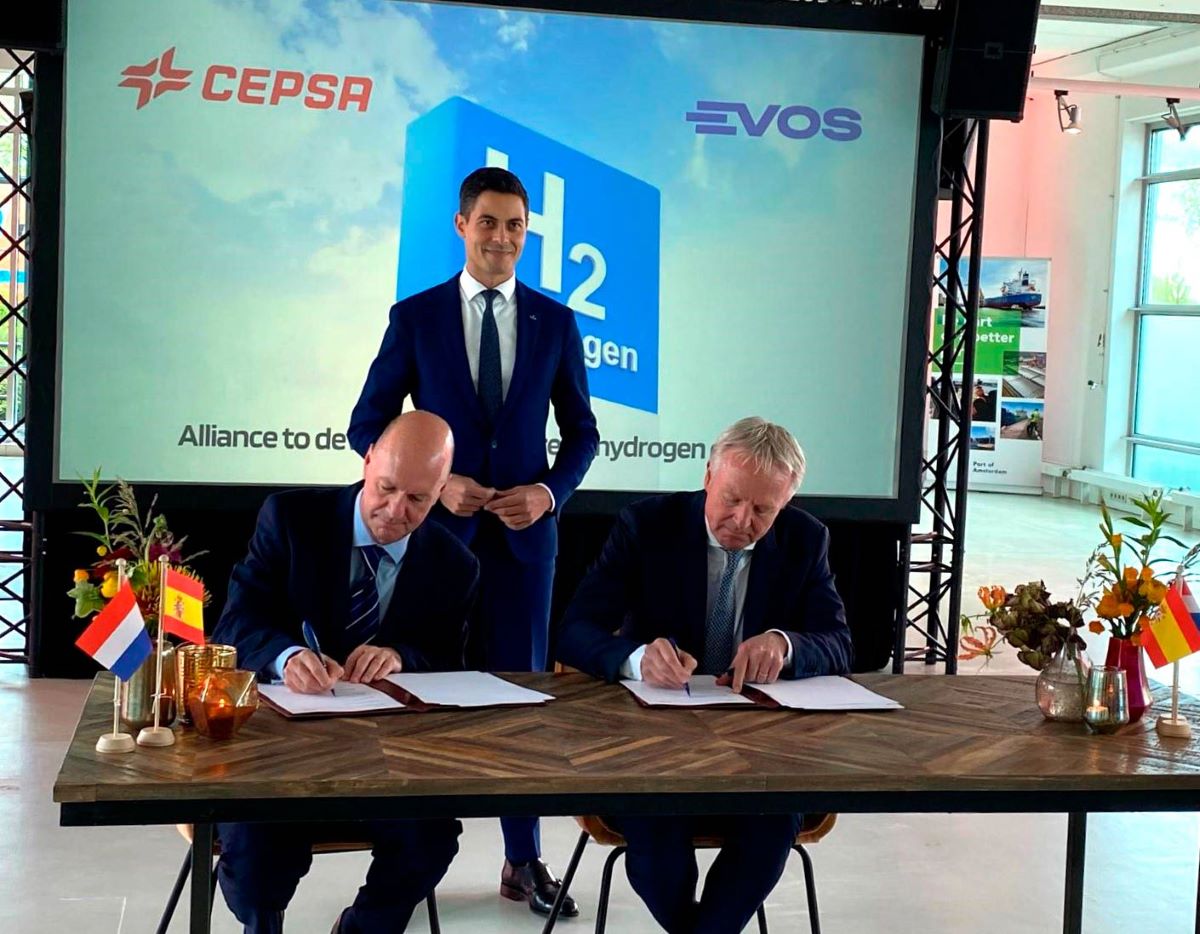The Netherlands – Spanish energy company Cepsa has signed an agreement with Evos, a leading liquid energy and chemical storage company with hubs in strategic locations across Europe, to enable the storage of green methanol to be produced by Cepsa at Evos’ storage facilities in Algeciras and Rotterdam.
The partnership, which also provides for the storage of green ammonia at Evos’ facilities in Algeciras, facilitates the logistics for the transport of green hydrogen products between key strategic ports in Spain and the Netherlands. Cepsa and Evos will also jointly study logistics for biofuels (e.g. Sustainable Aviation Fuel), renewable fuel from non-biological origin and hydrogen carriers, such as Liquid Organic Hydrogen Carriers (LOHCs) in other terminals of the Evos network in Northwest Europe, including Amsterdam.
The agreement was signed at the Port of Amsterdam in the presence of Dutch Minister for Climate and Energy Policy and Deputy Prime Minister Rob Jetten.
Green hydrogen valley
Cepsa is developing alongside partners the Andalusian Green Hydrogen Valley that which will entail two green hydrogen plants with a total capacity of 2 GW, a green methanol plant that aims to reach an estimated annual production capacity of 300,000 tons, and a green ammonia plant with an annual production capacity of up to 750,000 tons. In addition, Cepsa has started building a second-generation biofuels plant in Huelva as part of a joint venture with Bio-Oils that will create the largest facility of its kind in southern Europe with the capacity to flexibly produce 500,000 tons of Sustainable Aviation Fuel (SAF) and renewable diesel annually.
Evos is enhancing its strategic presence in the Green Import Corridors of Northwest Europe, focusing on the storage and handling of green hydrogen derivatives and renewable fuels.
Cepsa already has a partnership with the Port of Rotterdam to establish a green hydrogen corridor from the Port of Algeciras and also has agreements with ACE Terminal for the storage of green ammonia at the Port of Rotterdam and with Dutch company Gasunie that guarantees access to its green hydrogen transport network, which will connect with European industrial clusters in the Netherlands, Germany and Belgium as part of the Delta Corridor project.





